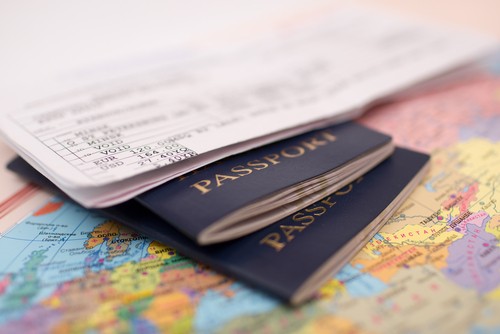The Home Office has published changes for the coming year, including pro-immigration reforms, which should give businesses and individuals more options and offer an improved application process.
Covid-19 Concessions
Throughout the current pandemic, the Home Office has published Covid-19 concessions through guidance, which can be changed at will. A few of these concessions are to be formally introduced into the Immigration Rules, providing more security to those affected, including:
- Tier 1 (Entrepreneur) Visa Holders: Those who were granted an extension under the concession, and wish to apply for settlement, will need to show they have created four jobs – each lasting 12 months, or two jobs – each lasting 24 months.
- Skilled Worker and Sportsperson Migrants: Applicants that were in another visa category and applied to ‘switch’ into either a skilled or sportsperson visa between 24th January 2020 and the 30th June 2021, may now be able to count this decision making time towards their settlement time.
- EU Settlement Scheme: The late concession/guidance relating to excessive absences issued shortly before the deadline of 30th June 2021 is being incorporated.

New Immigration Routes UK
The government has announced new Immigration routes to the UK. These will start in 2022 and include a revitalisation of the current Innovator route.
1. Global Business Mobility Route
The Global Mobility Visa route launched on April 11th, 2022 and consolidates the Intra-Company Transfer and other business mobility visas into a single route under five categories:
- Senior or specialist worker
- Graduate trainee
- UK expansion worker
- Secondment worker
- Service supplier
This route will give global businesses more options for sending personnel to the UK. One significant change is that intra-company transferees may be eligible to settle in the UK, giving employers more flexibility to transfer a group employee quickly without the need to meet an English language requirement – even where this is with a view to settlement.
Overseas businesses will also likely be able to send a team of up to five personnel to set up a branch or subsidiary in the UK, rather than just one.
The provisions for seconding personnel from overseas clients of UK export companies are likely to be more restrictive than the current visitor provisions but will allow secondees to be joined by their dependants.
2. Scale-up Route
The scale-up route will be an unsponsored route intended to enable highly-skilled and academically-advanced individuals to move to the UK to work at a recognised UK scale-up business. The route can lead to settlement. Eligibility criteria include the following:
- A UK salary of at least £33,000.
- Meeting an English-language proficiency requirement.
- A job offer from an approved ‘scale-up’ business that has demonstrated to the Home Office an annual average revenue growth or employment growth of at least 20%. This must be over a three year period with a minimum of 10 employees at the beginning of that period.
Although this route will likely benefit a relatively small number of businesses and individuals, it will provide certain SMEs with streamlined access to skilled workers to assist with the hypergrowth phase of their development.
3. New High Potential Individual Route
In the Autumn 2021 Budget, Chancellor Rishi Sunak noted that 49% of the UK’s fastest-growing businesses have at least one foreign-born co-founder and that approximately 40% of staff in UK fintech firms are from overseas. The High Potential Individual route directly responds to these statistics, designed to encourage further inward investment and attract highly-skilled, internationally-mobile individuals and usefully-skilled international graduates to the UK. Eligibility criteria for the route include the following:
- There is no requirement for a UK job offer. Applicants will have the freedom to switch jobs and employers at their leisure.
- Applicants must have graduated from a top global university. However, the government has promised to explore the scope to expand this eligibility requirement to encompass other high potential individuals who may not meet this requirement.
- It has been confirmed that time spent on this route can lead to settlement, subject to suitability requirements.
Eligible applicants do not need to have a job offer to qualify. Employers will be able to engage holders of this visa without having to participate in the process of securing it.
4. Revised Innovator Visa:
Qualifying for the innovator visa has become much simpler. Now, you are only required to show your business.
- Has the potential to grow
- It will stay innovative
- It will benefit the UK
You no longer need to have a minimum investment fund of £50,000 and you only need to prove that you have sufficient funds for the business. If you qualify for the innovator visa, you can now work for another company in the UK along with handling your business.
Other Points To Note:
Complying with immigration sponsor requirements and system changes will be critical for UK businesses in 2022. Key points to note include:
- Many more employers now need a licence to sponsor EEA national workers following the end of free movement. These employers may need assistance to assess and advise on their readiness to become a sponsor and check their compliance with sponsorship obligations once a sponsor licence is in place.
- Longstanding sponsors also need to rely more heavily on their licences. Therefore, they may benefit from refresher training or practice audits to limit the risk their licence may be suspended or revoked.
- There are high levels of corporate mergers, acquisitions and other restructuring activities. The restructuring may have implications for sponsor licences, including the need to make reports to the Home Office or a requirement to apply for a new sponsor licence.
- The Home Office has confirmed in its ‘sponsorship roadmap’ that sponsor compliance visits will remain a priority as it reforms the sponsorship system over the next few years. Onsite visits have resumed after being discontinued during the early phases of the pandemic.
- Lastly, a rolling programme of IT transformation changes is also planned in the sponsorship sphere up to the first quarter of 2024. A new service, ‘Sponsor a Visa’ will launch in mid-2022 and will allow visa applicants to access a partly-populated online application form once the details of their role have been approved. Employers will need to be aware of this change and will likely need to adjust their internal processes accordingly.
All in all, there is a lot on the horizon for UK immigration in 2022.
Do you need expert advice to navigate the ever-changing and complex immigration system? Contact our team for a free consultation. We would be delighted to see how we can help you. Please get in touch for your free, initial consultation.





